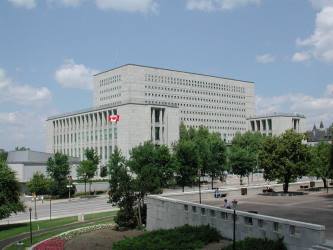
Call for Proposals: Documentary Heritage Communities Program (DHCP) 2020-21
October 30, 2019
Library and Archives Canada (LAC) provides $1.5 million each year to documentary heritage organizations across the country. This funding helps to ensure that Canada’s continuing memory is documented, preserved and accessible.
Organizations may apply for funding through the Documentary Heritage Communities Program’s annual call for proposals.
The call for proposals begins October 15, 2019, for projects starting April 1, 2020. The deadline to submit applications is January 7, 2020, at 11:59 pm, Pacific Standard Time (PST).
Objectives
The DHCP aims to ensure that Canada’s continuing memory is documented and accessible to current and future generations.
The DHCP provides financial assistance to the Canadian documentary heritage community for activities that:
- increase access to, and awareness of, Canada’s local documentary heritage organizations and their holdings; and
- increase the capacity of local documentary heritage organizations to better sustain and preserve Canada’s documentary heritage
Who can apply
Local documentary heritage organizations eligible to apply to the DHCP are non-profit organizations that hold collections of mainly local or regional significance:
- Archives
- Genealogical organizations/societies
- Historical societies
- Indigenous government institutions
- Libraries
- Organizations with an archival component
- Professional library and archival associations
All applicants must be privately funded (50% or more) with the exception of Indigenous government institutions.
Different funding conditions apply to incorporated and non-incorporated organizations.
Ineligible applicants
- Businesses (for profit)
- Government institutions (except Indigenous government institutions)
- Publicly funded organizations (such as municipal libraries)
- Educational institutions (such as schools, colleges, universities)
Furthermore, non-profit organizations that are administered by a government entity or that receive more than 50% of their annual operating funding from any level of government without having to request it, are ineligible to apply for funding under the DHCP.
An ineligible applicant can still participate and/or collaborate in a project submitted by an eligible applicant, by providing the latter with in-kind or financial assistance. However, an ineligible organization cannot act as a co-applicant or official partner, nor can it benefit financially from the contribution.
What can be funded
The DHCP can provide funding for projects and activities that relate to either or both of the program’s objectives.
Objective 1: Increase access to, and awareness of, Canada’s local documentary heritage organizations and their holdings.
- Collection, cataloguing and access-based management
- Commemorative projects
- Conversion and digitization for access purposes
- Development (research, design and production) of virtual and physical exhibitions, including travelling exhibits
Objective 2: Increase the capacity of local documentary heritage organizations to better sustain and preserve Canada’s documentary heritage.
- Conservation and preservation treatment
- Conversion and digitization for preservation purposes, including interviews to capture oral history
- Increased digital preservation capacity (excluding digital infrastructure related to day-to-day activities)
- Training and workshops that improve competencies and build capacity
- Development of standards, performance and other measurement activities
Eligible projects and activities
Examples:
- Conducting interviews with local veterans about their experiences during the Second World War or local Indigenous Elders about their experiences, traditions and culture (oral history)
- Conserving and/or restoring portraits or photographs of historical and/or local significance
- Creating an exhibition based on a specific collection
- Developing and sharing best practices and policies for processing holdings
- Digitizing a mixed media collection or local oral history interviews
- Digitizing newspapers for which the applicant owns the copyright
- Organizing a documentary heritage conference
Organizations applying to the DHCP must own the documentary heritage collections for which they seek funding.
Furthermore, artifacts or objects (such as statues, globes or medals) are not eligible for inclusion in projects funded under the DHCP.
Ineligible projects and activities
Examples:
- Acquiring a new collection
- Projects involving documentary heritage collections that the applicant does not possess or hold appropriate rights and/or permissions
- Activities related to artifacts or objects
- Clearing backlogs of received materials, which the applicant organization would normally process as part of its ongoing operations
- Creating a book, magazine, theatre script or documentary film that features a collection
- Developing an exhibition with material that is not in the applicant’s custody
- Renovating a building
Add a new comment